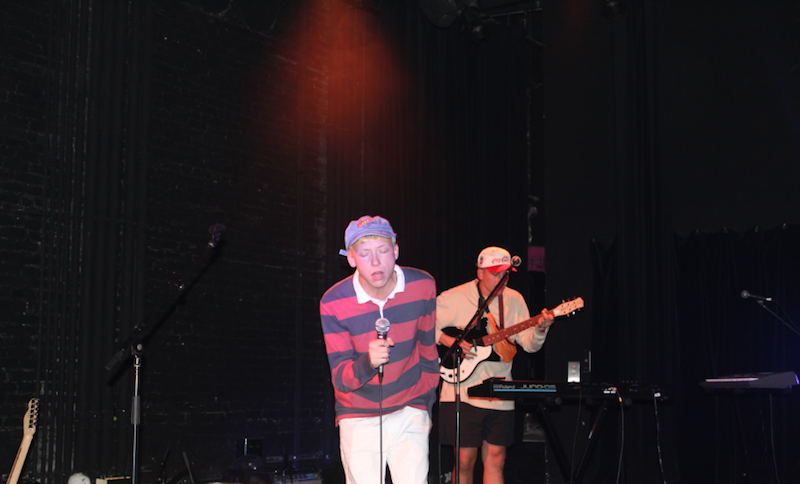Lucy Dacus and her tour company took on L’Astral this past Monday
On Sept. 16, Lucy Dacus and her tour company drew quite a crowd at L’Astral. This was all to be expected having run off the momentum of her critically-acclaimed 2018 sophomore album Historian, and joined by stellar openers Quinn Christopherson and Taylor Janzen. It made sense that dozens showed up to the venue ready for a night of cold beer, warm synths, and some soft indie-alternative.
Winnipeg-native Janzen began the night at 8 p.m. with a short but sweet piano performance, singing the sad, reflective songs she has become known for across Canada and beyond. After a brief intermission half an hour later, Christopherson took the stage with friend Nick Carpenter by his side on keyboards and guitar.
Being the winners of the 2019 Tiny Desk Contest, it immediately made sense why NPR described Christopherson and Carpenter as “performers loaded with unfettered confidence,” as they sang their emotionally-candid ballads about vulnerability and the struggles of self-acceptance. However, the sadness in their music felt nonexistent when the duo stopped strumming between songs, taking a few seconds to crack jokes with the audience.
“This next song is untitled,” Christopherson said to the crowd midway through his set. “So if anybody has name ideas, feel free to add me on MSN.” The crowd burst out laughing. Carpenter chuckled too, looking over at his friend.
As the headliner and final act of the night, Lucy Dacus and bandmates started off at 9:30 p.m., performing hits from Historian along with recent singles, such as her cover of Bruce Springsteen’s “Dancing In The Dark.” Despite an oft-present lyrical theme of facing uncertainty, Dacus had full crowd control throughout her set, transitioning from ambient, meditative songs about death and heartbreak, to getting everyone jumping with the more upbeat rock-inspired songs.
Passion could be felt both inside and outside the performance; when Dacus was not playing a song, she was providing a short backstory for the following one.
“This next song I wrote for my mom,” she said before playing “My Mother & I,” a single released in April. “It still makes me nervous to perform it sometimes. But, preemptively, she [my mom] likes it,” Dacus joked.
By the end of the night, Dacus appeared fully at home in Montreal.
“I’m not usually one for encores and happen to think they’re kind of corny,” she said, returning to the mic. “But I really feel comfortable here right now, so why not?” Dacus went on to play “Historians,” the languid final track off her 2018 album, which turned out to be the perfect slow song to wrap up the night on a peaceful note.
All in all, L’Astral had a Monday evening filled with passionate artists doing what they love and know best. The performances felt refreshingly honest. Taylor Janzen, Quinn Christopherson, and Lucy Dacus provided voracious listeners their indie-fix and gave everybody in the crowd a night to remember.
Feature photo by Spencer Nafekh
